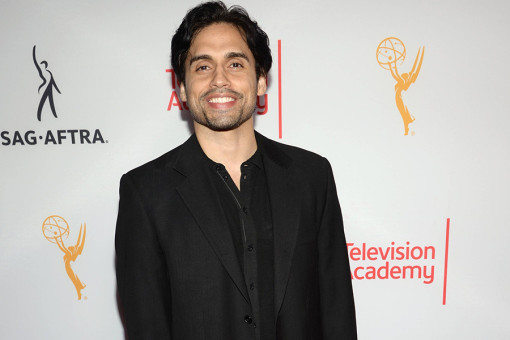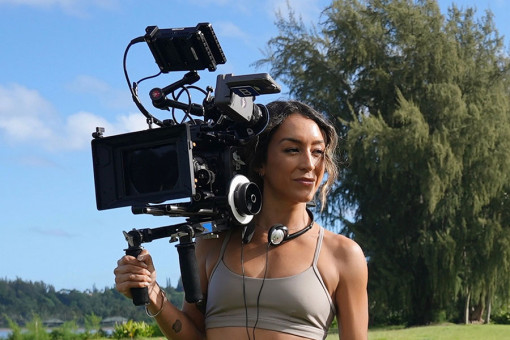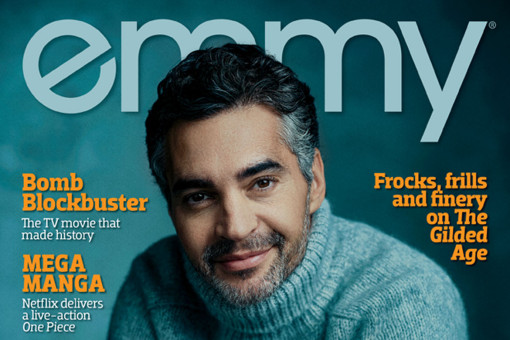When Haskiri Velazquez scored the role of Daisy Jiménez in the Peacock reboot of Saved by the Bell, she was more than happy to flip the script.
The original show, a cornerstone of '90s nostalgia, is famous for presenting an idealized version of teen life, an episode featuring the dangers of caffeine pills, and a lead character who could freeze time to deliver quippy asides. The new version ramps up the teenage melodrama of its predecessor with hard looks at social stratification and diversity.
These issues are brought to the fore when Daisy and her friends from Douglas High, a school in a low-income school who district, are transferred to Bayside High in affluent Pacific Palisades. There, they simultaneously try to survive their new environment and the everyday perils of pre-adulthood.
Velazquez's Dominican and Puerto Rican background helped her to relate to Daisy as a fellow Latina. Velazquez takes pride in her heritage, and is committed to helping others from the Latinx community achieve their creative goals.
Who was Daisy when you started shooting season one of Saved by the Bell? And how has she changed in the two seasons you've played her?
Season one, Daisy was just who I was, essentially. She resonated with me because she was very optimistic, determined, motivated, and driven. Daisy was set in stone with what [the writers and producers] wanted out of this character.
I knew that I had to bring myself into her because I think it was important for the Latino community to have someone that they can relate to the same way I was able to relate to her. For season two, it was getting to know more of her, how she grew, but also finding her voice and finding a voice for everyone else at Bayside.
What appealed to you about how the social and racial politics matured from the original version of the show to your contemporary take?
The original version had a diverse cast. Going into the [new version], I knew that it was going to be even more diverse. What [the writers and producers] were trying to do was mirror today's world. When you step out from your front door, you don't see one type of ethnic background or ethnic group. It's a melting pot, from New York to Los Angeles.
I think it was the perfect time to see that on TV and reflect what's happening today. The show also touches on topics that aren't really shown on TV. Tracy Wigfield, the showrunner, and Franco Bario, the producer, [touched on the topics] so well because they did it in a way where it wasn't being pushed upon you.
Do you feel a pressure to take certain roles or avoid certain roles as a Latina actress?
I wouldn't say there's a pressure. I'm more aware of certain roles that I do audition for. I don't want to get typecast or stereotyped into one particular box. The reason I love acting is that I want to tell multiple stories. Also, [it helps] having a team behind me that can guide me in that direction. But, I also want it to be in a way where I can create opportunities, not just for myself, but for the generation that comes after me.
How do you see yourself creating those opportunities?
My long-term goal is to start a non-profit organization in Washington Heights, New York, where I grew up. That's how I got my foot into acting in the first place. It's where I found my basics on what acting is, how to go about having a career in acting, and where I immersed myself in the craft. I've released a few YouTube videos on how to become an actor.
My YouTube channel is called Thats a Wrap, and it's for aspiring actors who don't know where to start. I guide them in that direction, and making a career as an actor a lot less stressful — just being a helping hand for them. And hopefully, I'm a part of their story when they make it big one day.
What sort of small steps do you see that can help widen diversity and representation in the industry?
I can only speak for my show, but I think the one thing that makes Saved by the Bell successful is the fact that, besides the cast being diverse, we also have a lot of diversity in the writers' room. [When my character] speaks Spanish, it's coming from Spanish-speaking writers. The writers also ask us for our input, which I think is extremely important because there's not one way to speak Spanish.
You have slang, the Spanish from the Bronx my friends speak in Washington Heights. There's Venezuelan, Cuban, all these different languages that aren't the same. It's important to show that on-screen to keep it authentic. [Progress] starts behind the camera, in the writers' room, and making sure that you have the right people creating authentic, true stories for what the viewers are going to watch, because you want it to be something that everyone can relate to.
How concerned are you about being pigeonholed or labeled?
I think a lot of people are trying to find how they identify and how they want people to identify them. In a way, it puts on restrictions, because for me, growing up, every time I watched TV, I never said, "Oh, I can't do that. I can't play that character." It was, "I can play that character regardless of my background."
For me, acting was storytelling and making someone on the other end of the spectrum feel something. For the future, it would be nice to open up more doors so that everyone can audition for [all] roles. I think they should allow everyone to become the characters and see who best fits the part.
Now, if the story requires [the character] to be a certain ethnic background, then let's honor that because we want to pay it that respect. I don't want to be pigeonholed. That comes into play with making sure that I pick roles that aren't so specific in their description and that are more about the story. It's wanting to put yourself in somebody else's shoes, walking in those shoes, creating that scene for whoever's watching it, and making it as authentic as possible.
Saved by the Bell airs on Peacock.
For more stories celebrating Hispanic Heritage Month, click HERE




















